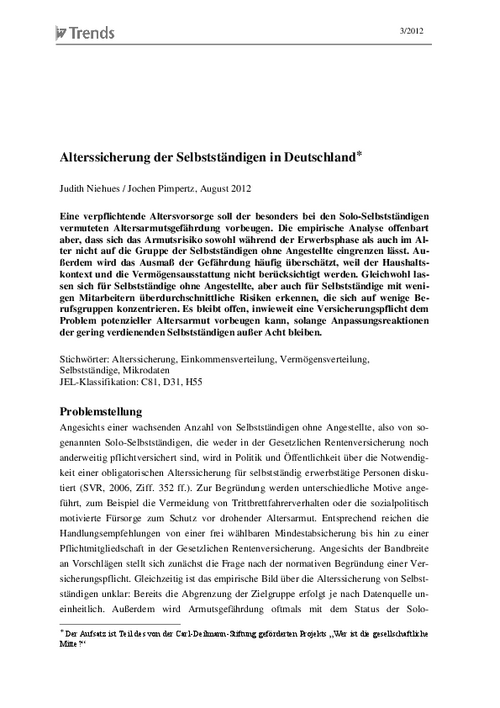A mandatory pension scheme is intended as a precaution against the risk of old age poverty assumed to particularly affect solo entrepreneurs. However, an empirical analysis reveals that for the self-employed the risk of impoverishment either during their working life or in retirement is not limited to those without employees. Moreover, failure to take account of both the accumulated assets and the household situation of the self-employed often leads to an overestimation of their exposure. Whilst it is possible to identify above-average risks affecting sole proprietors with few or no employees, such risks are concentrated in a limited number of occupations. Furthermore, self-employed people with low earnings are likely to adapt their behaviour in response to any mandatory pension scheme. How successful such a measure can be in combating the threat of old age poverty without taking this into account is open to question.
Download | PDF


